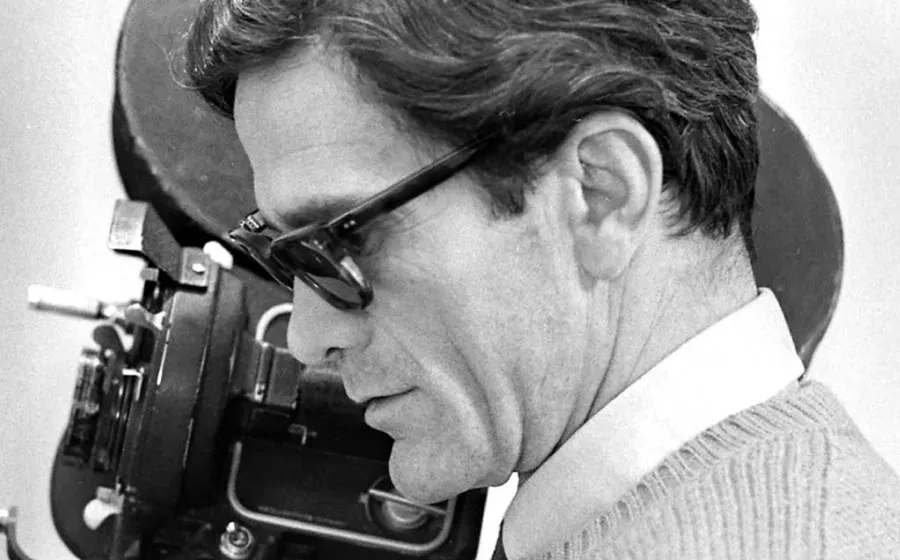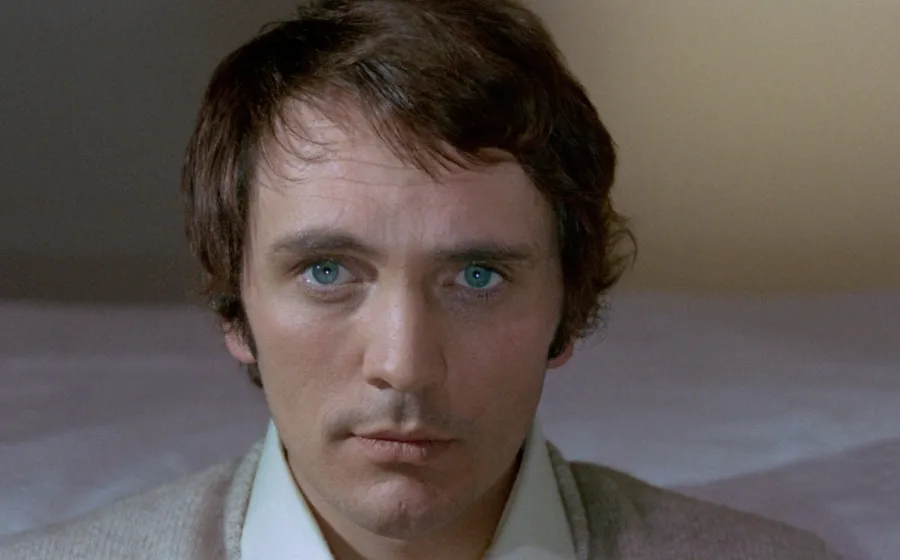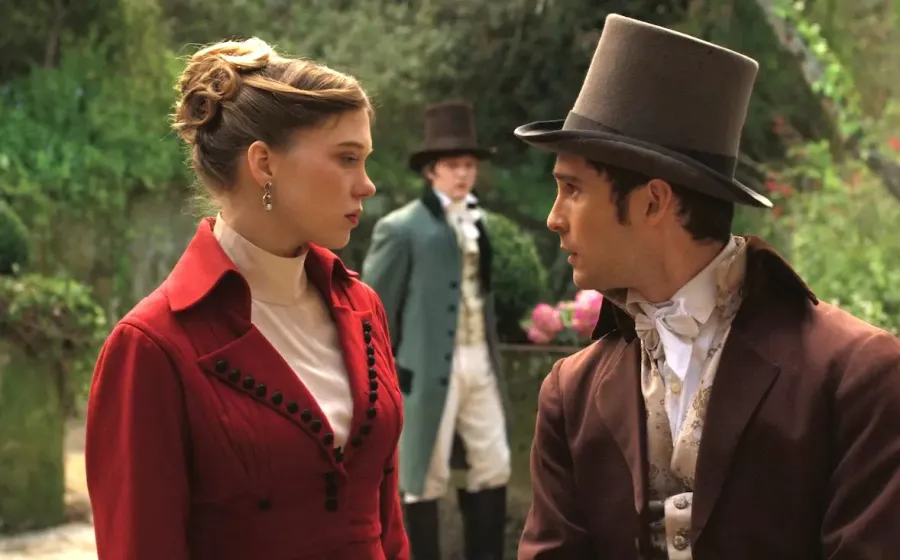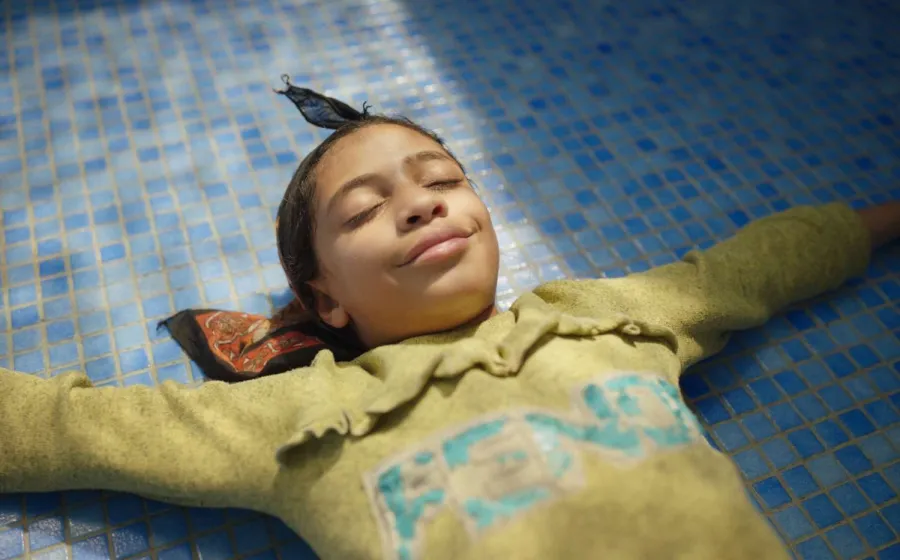Cineteca Madrid celebrates Pasolini’s legacy and explores the strange futures of cinema this November
- The series Strange Futures examines, through fiction, essay, and documentary, the technological and social imaginaries of our present
- Cineteca en familia rediscovers the animated worlds of Ub Iwerks, pioneer of modern drawing and creator of Mickey Mouse
- Linterna, the monthly series curated by Brays Efe and Miguel Agnes, rescues The Ear, Karel Kachyňa’s masterpiece on fear and control
- Cineteca Madrid hosts new editions of Cine por Mujeres Madrid, QueerCineMad, RIZOMA, and Márgenes — four of the most representative festivals of Madrid’s autumn season
- Screenings continue from the retrospective dedicated to Chilean filmmaker Raúl Ruiz
Cineteca Madrid, part of the Department of Culture, Tourism, and Sports, dedicates the month of November to the poetics of future and memory. On the 50th anniversary of the death of Italian filmmaker Pier Paolo Pasolini, his cinema returns to the screen as a space of revelation and resistance. Alongside it, the Strange Futures cycle explores technological fictions that shape our present through irony and unease.
The program also includes a tribute to animation pioneer Ub Iwerks; the return of the monthly series curated by Brays Efe and Miguel Agnes, Linterna, featuring the unsettling The Ear by Karel Kachyňa; and the celebration of some of the most notable film festivals of Madrid’s autumn. A month to think of cinema as active memory and as a laboratory for possible futures.
Eternal Pasolini
On November 2, 1975, the body of Pier Paolo Pasolini was found on the beach at Ostia. Poet, novelist, essayist, and filmmaker, Pasolini turned cinema into an act of moral insurrection — a space where the sacred and the political, the popular and the erudite coexisted with uncompromising honesty.
Cineteca Madrid commemorates the 50th anniversary of his death with two special sessions devoted to his work and memory: Teorema (Italy, 1968), a parable about the eruption of desire and faith in bourgeois life, and The Gospel According to St. Matthew (Italy, 1964), a humanist and radical reading of the biblical texts, accompanied by the short film Funeral of Pier Paolo Pasolini (Italy, 1975). Two complementary views of a creator who turned contradiction into a form of truth.
Strange Futures in Cinema
The series Strange Futures, curated by Bani Brusadin and artist-researcher Solveig Qu Suess and organized in collaboration with Medialab Matadero, brings together an international selection of films, essays, and non-fiction works that question technological representations of the present and possible future scenarios. Between speculation and satire, these works portray a world where surveillance, algorithmic control, and precarity have become the norm.
Organized within Medialab Matadero’s LAB 4 program, the series proposes a constellation of stories about contemporary uncertainty. Works such as Fresh Kill (Shu Lea Cheang, USA, 1994), The Seasteaders (Jacob Hurwitz-Goodman and Daniel Keller, USA, 2018), and Everything But The World (Lauren Boyle, USA, 2021) combine with recent short films by artists such as Silvia Dal Dosso, Rouzbeh Akhbari, and Ayoung Kim, composing a mosaic that moves between dystopia, absurdity, and political critique.
Also featured in the cycle are: Rola Rolls (eobchae, South Korea, 2024), Welcome to Jankspace, Babes (Daniel Felstead, Jenn Leung, UK, 2025), CODEX ENTROPIA (Richard Pell, USA, 2020), Random Access (Zike He, China, 2023), and Never Rest/Unrest (Tiffany Sia, Hong Kong, 2020).
Cineteca en familia: The Animated Worlds of Ub Iwerks
November’s family series pays tribute to Ub Iwerks (1901–1970), pioneer of modern animation, co-founder of Disney Studios, and creator of the definitive design of Mickey Mouse. Restless and inventive, Iwerks founded his own studio in the 1930s and developed the ComiColor Cartoons series — colorful shorts inspired by traditional tales and fables.
On Sundays, November 16 and 30, at 12:00 p.m., Cineteca will present two full programs that recover these restored Cinecolor gems, featuring original music by Looney Tunes composer Carl Stalling. Fantasy, humor, and technique combine in pieces that reveal the talent of a true animation visionary.
Linterna, Episode 3: The Ear
In the third episode of Linterna, the program curated by Brays Efe and Miguel Agnes, the film The Ear (Ucho, Czechoslovakia, 1969) by Czech filmmaker Karel Kachyňa will be screened. Banned by the regime after its release, this masterpiece of European political cinema turns a night of marital paranoia into an allegory of surveillance and fear. Between psychological thriller and intimate drama, the film unfolds a suffocating atmosphere where distrust becomes a metaphor for power.
Festival Month at Cineteca
November is once again the month of major festivals at Cineteca Madrid. The center will host the 8th edition of Cine por Mujeres Madrid (November 4–9), the 30th QueerCineMad Festival (November 11–16), the 13th RIZOMA International Film & Entangled Culture Festival (November 18–23), and the 15th Márgenes Festival (November 25–30). Four essential events that reaffirm Cineteca Madrid’s role as a meeting point for independent and contemporary cinema.
Regular Cycles and New Installments in the Raúl Ruiz Retrospective
This month, Relatos del ruido pays tribute to musician and programmer Javier Piñango (1962–2025), and the cycle Así son las cosas presents De memoria (by Amaya Hernández, Julia Martos, and Florencia Rojas). In addition, the retrospective dedicated to Chilean filmmaker Raúl Ruiz continues, with titles such as Three Sad Tigers (Chile, 1968), The Hypothesis of the Stolen Painting (France, 1979), and Mysteries of Lisbon (Portugal–France, 2010).






